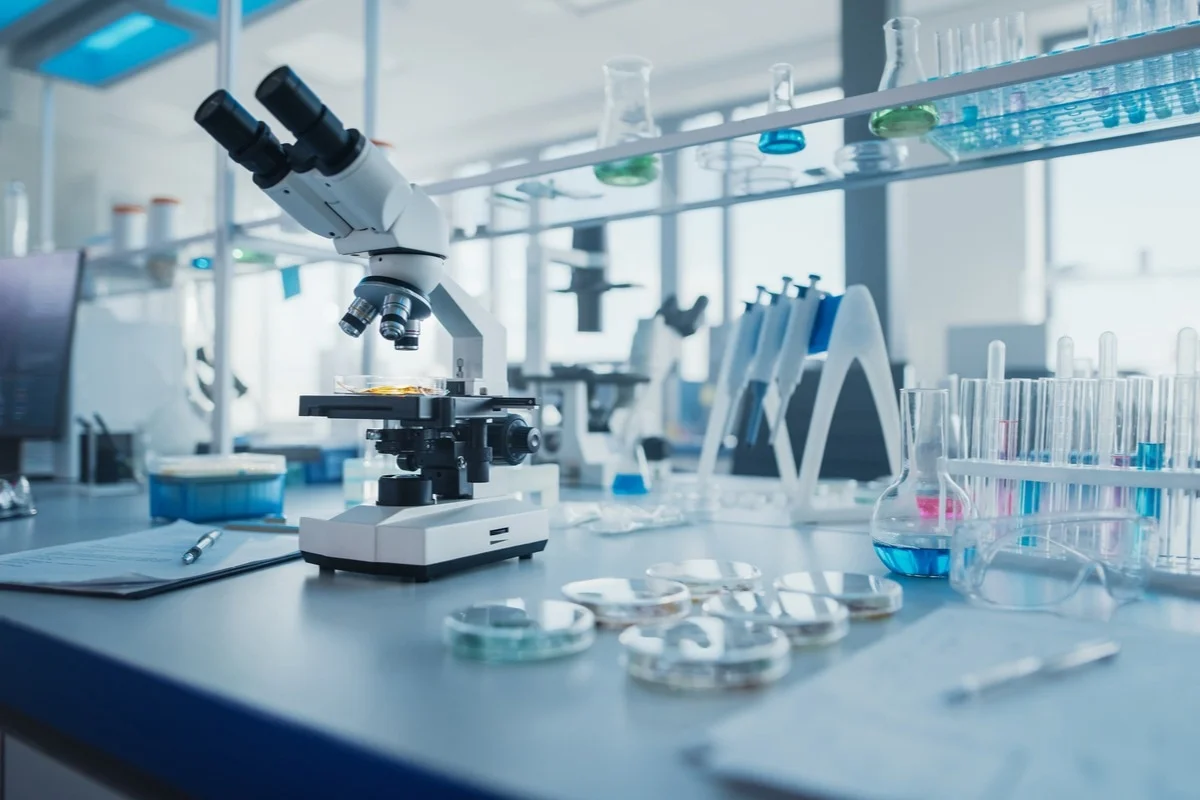
Introduction to Clinical Microbiology
The Clinical Microbiology Laboratory is a full-service laboratory offering diagnostic bacteriology, mycology, parasitology, virology, and mycobacteriology. The laboratory receives specimens from in-patients at the University of Illinois Hospital and the University’s outpatient clinics, as well as from several outreach sites throughout Illinois and the United States. The Microbiology Laboratory is composed of several sections including Aerobic and Anaerobic Bacteriology, Mycology, Parasitology, and Mycobacteriology.
- Isolates and identifies clinically significant microorganisms from clinical specimens and performs antimicrobial susceptibility testing on these bacterial pathogens. These functions are performed with the Vitek-2 automated instrument;
- Additional reference identification and susceptibility testing methods for other, more fastidious bacterial agents are also available;
- Performs blood cultures using the BactiAlert system, which provides continuous monitoring of blood cultures for the entire 7-day incubation period
- Performed amplified probe tests for detection of Neisseria gonorrhoeaeand Chlamydia trachomatis in urogenital specimens
- Performes “real-time” PCR on nares swab specimens and other specimen types are available for rapid detection/identification of methicillin-resistant strains of Staphylococcus aureus (MRSA)
- Performs isolation and characterization of clinically significant anaerobic bacteria. For these purposes, the laboratory is equipped with a glove box, a gas-liguid chromatograph, and other methods to provide accurate identification of anaerobes.
- Performs identification and anti-fungal susceptibility testing on clinically significant yeast isolates;
- Provides identification of pathogenic moulds recovered from clinical specimens, including dermatophytes, moulds causing wound and systemic infections, and systemic mycotic agents such as Histoplamsa capsulatum and Blastomyces dermatiditis
- Provides services for the diagnosis of various parasitic infections;
- Has a great deal of expertise and provides diagnostic parasitology services to several other local hospitals and clinics;
- Specimens submitted for parasitology include stool specimens for the detection of pathogenic amoebae, and flagellates, and for detection/identification of the ova belonging to various nematode (roundworms), cestode (tapeworms), and trematode (flukes) species
- Blood specimens are also submitted for the diagnosis and species identification of malarial parasites
- Provides services to aid in the diagnosis of viral infections
- Performs culture methods for several viral agents, and enzyme immunoassay tests are used for detection of several non-cultivable viral agents such as rotavirus
- Performs “real-time” molecular detection assays for influenza A and B viruses, and, in cooperation with Molecular Pathology, also offers multiplex molecular detection of several other respiratory viruses
- Performs HIV-1 antibody encyme immunoassays, syphilis serology, and cultures for Trichomonas vaginalis.
- Receives specimens for the isolation and identification of acid-fast organisms including Mycobacterium tuberculosis, Mycobacterium avium complex, and other important mycobacterial pathogens
- Utilizes state-of-the-art methods to detect growth and to confirm the identities of isolates, including the use of chemiluminescent ribosomal RNA probes for species identification
